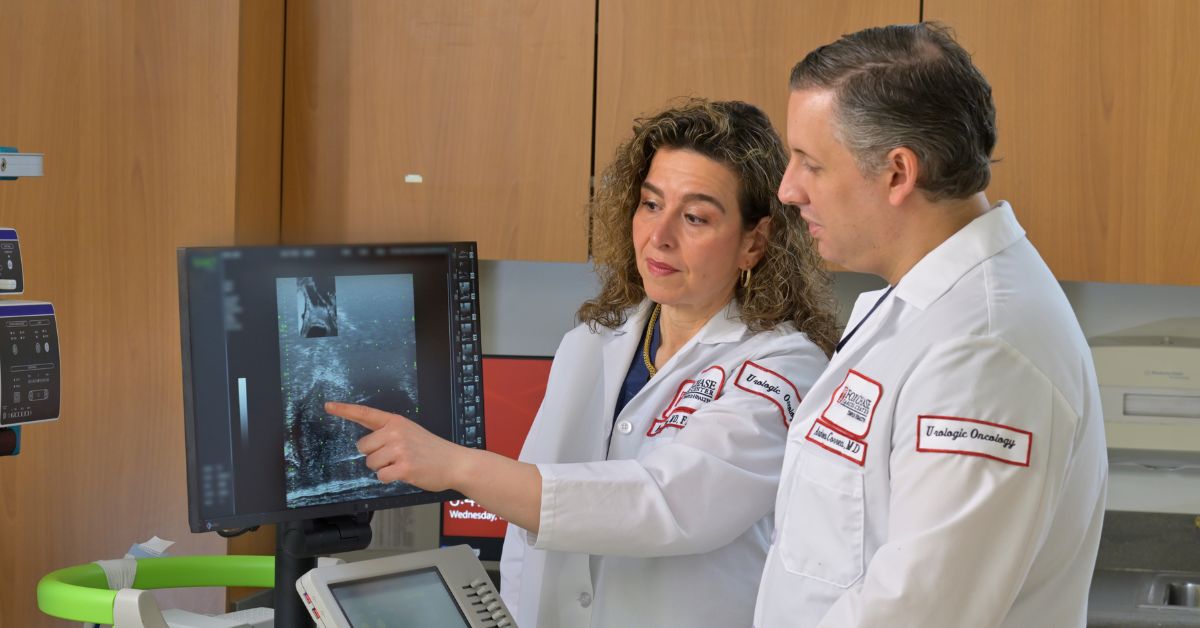
Prostate Cancer: Could your Genes Raise your Risk?
-
Genetic Testing May Offer Answers
If someone in your family has had prostate cancer, you might wonder how that affects your own risk—and what you can do about it.
The genetic connection
When it comes to prostate cancer risk, your family history is only one part of the picture, along with factors such as your age, race, and ethnicity.
But the truth is that having a close relative with prostate cancer—or certain other cancers, including breast or ovarian cancer—does mean you’re more likely to develop the disease. Your risk rises the more relatives you have with prostate cancer. That’s especially true if those relatives were younger than 60 when they were diagnosed.
The reason often comes down to genes. Some prostate cancers may be hereditary, meaning they’re caused by a gene change passed down through the family. These changes are called genetic mutations.
In other cases, cancers occur in multiple family members with no clear link to any specific changes in a person’s genes. These cancers are called familial.
That’s why it’s crucial to let your doctor know if someone in your family has had prostate or another kind of cancer. They can help you understand how that—along with the rest of your health history—affects your own risk.
Knowledge is power
Your doctor might recommend that you start screenings for the disease early. Or they might recommend genetic testing to better assess your risk.
Blood or saliva tests are available that can identify genetic mutations that may cause prostate and some other cancers.
You might consider genetic testing to assess your prostate cancer risk if:
- You have a father, brother, or son with prostate cancer.
- Prostate cancer occurred in two or more of your second-degree relatives (such as uncles, grandfathers, or cousins) on the same side of the family.
- Your relatives had breast, ovarian, colon, or pancreatic cancer. This is because some genes linked to these cancers—such as the BRCA “breast cancer” genes—also may cause prostate cancer.
You can’t change your genes—and there’s no surefire way to prevent prostate cancer. But knowing your risk can help you protect yourself.
That might mean starting screening tests earlier than is generally recommended. Screenings such as a prostate-specific antigen (PSA) test can help to detect prostate cancer in its early stages, when it may be easier to treat.
Some risk factors—like your family history, race, and age—can’t be changed. But there are positive steps you can take. Maintaining a healthy weight, exercising regularly, and adopting a plant-rich diet low in red or processed meats may help reduce your risk, according to the American Cancer Society.
Get expert guidance
The Fox Chase Cancer Center Risk Assessment Program can help you decide if genetic testing is right for you. And we’ll be there to help you understand your results and choose your next steps. Our High-Risk Prostate Cancer Clinic specializes in helping people with prostate cancer, and those at high risk for getting it, take control of their health.
If you’re concerned about your risk for prostate cancer, call 877-627-9684 or request your risk assessment appointment online.
